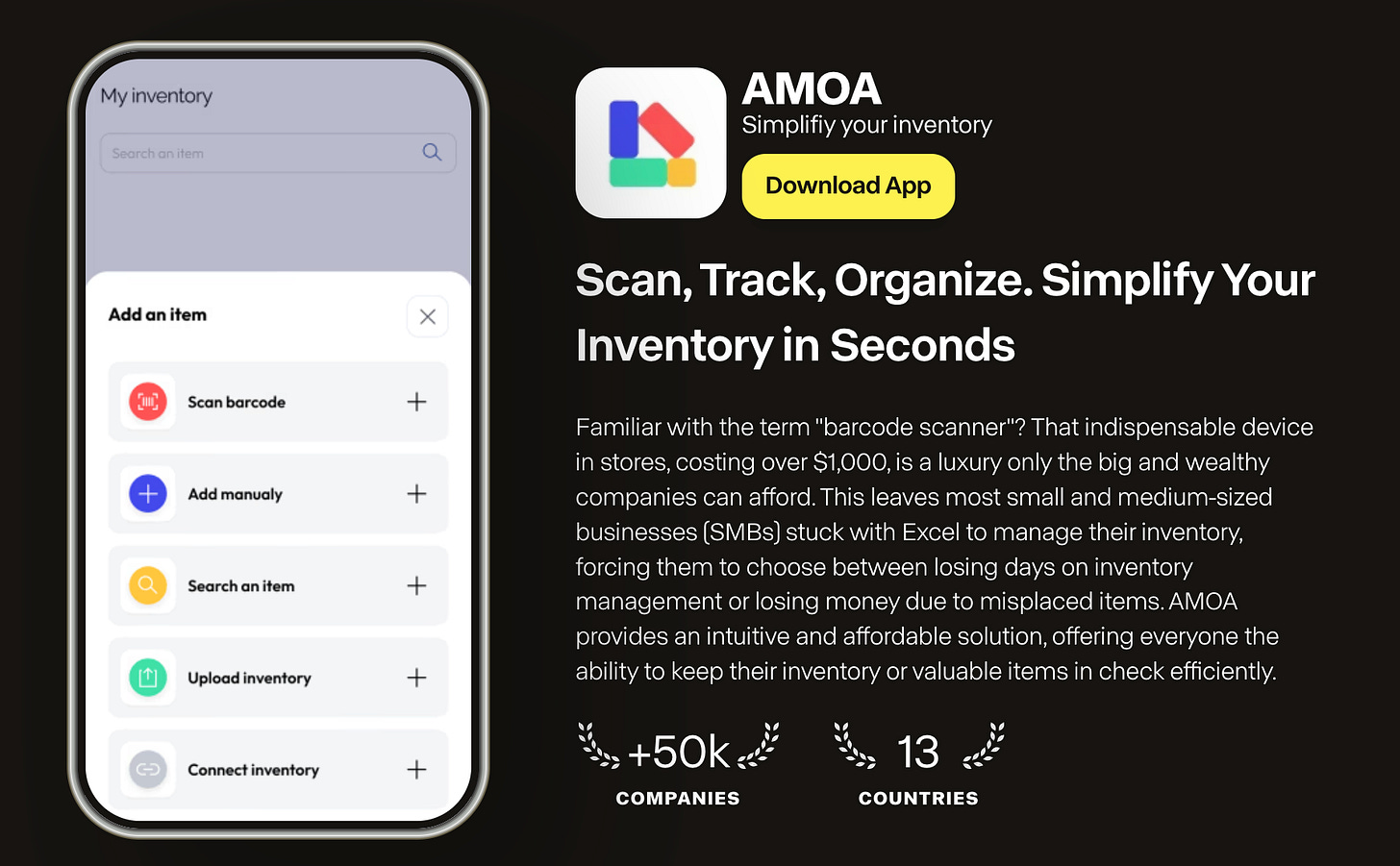Hedging Your Bets
Today's featured startup aims to be the Swiss Army knife of mobile app development.
Project Overview
The Mobile-First Company aims to launch mobile applications that cater to "every need."
True to its name, the startup embraces a "mobile-first" philosophy—meaning that all its applications are designed from the ground up for seamless mobile use, rather than being clunky, stripped-down versions of desktop apps.
For consumer apps like TikTok or Instagram, this approach is already the norm. Their desktop versions, if they even exist, are secondary to the mobile experience. But business applications follow the opposite trend—desktop versions tend to be fully functional, while their mobile counterparts are often inconvenient, feature-limited, or both.
This startup wants to change that by building "mobile-first" applications specifically for small businesses—those that lack the resources to develop their own custom mobile solutions.
Instead of focusing on a single industry, the company plans to serve multiple sectors, including retail, healthcare, fast food, and construction. Its apps will simplify tasks like updating CRM records after client interactions, generating invoices, handling online restaurant orders, and managing projects in construction and repair.
The company plans to launch at least 20 such applications, all designed to integrate with one another—forming a unified mobile ecosystem for small business management.
Interestingly, the startup sees as its primary competitor not other dedicated business apps, but Excel—the default tool still used by most small businesses.
Founded in December last year, this French startup has already raised €3.5 million in funding and launched its first product: Amoa.
Amoa is a warehouse management app equipped with a built-in barcode scanner, allowing businesses to track inventory in real time by simply using their phones.
What's the Gist?
Surprisingly, Amoa isn't just positioned as a business tool.
The startup promotes it as a solution for highly organized individuals who want to maintain "order at home." Users can catalog household items—TVs, microwaves, furniture—complete with descriptions, photos, purchase dates, receipts, and warranty details, all in one place.
Another suggested use case? Collectors. Coin, stamp, or model car enthusiasts can use the app to catalog their collections just as businesses use it for inventory tracking.
At first, this might seem like a dangerous dilution of the startup’s business focus. But on closer examination, it actually makes sense.
A small business owner’s life is often intertwined with their work. Unlike the head of a large company, who keeps business and personal tools separate, an independent entrepreneur is likely to use the same software for both. A shop owner might use a mobile inventory app not just for their store, but also to track car parts or tools in their garage.
In fact, the ability to use a single app for both work and personal life could be a selling point—especially if the alternative is managing everything in Excel. And, as we recall, Mobile-First Company’s main competitor is… Excel.
So instead of diluting its focus, this dual-purpose approach could actually be a strategic advantage. The startup is now testing this hypothesis.
Key Takeaways
An important distinction here is that this startup isn’t just launching a single, game-changing product. But neither is it scattering its efforts across unrelated markets.
Its target audience is clearly defined: small business owners. This means every new product can leverage the same marketing and distribution channels, improving efficiency over time. Happy users of one app are the easiest customers for the next one.
It’s not about individual apps—it’s about a repeatable process. The startup is building a "product factory" that systematically identifies pain points in small businesses' Excel workflows and replaces them with specialized mobile apps.
This approach is similar to how Staytuned, a startup building tools for Shopify store owners, operates. However, instead of developing its own apps, Staytuned buys existing ones, raising $46.5 million to scale its model.
Another example is Unaric, which follows a similar strategy for Salesforce-integrated apps, having raised $35 million.
Compared to these companies, Mobile-First Company’s decision to develop its own apps might seem like a limitation—potentially slowing its growth. But with AI making app development faster and cheaper, this trade-off may not be as significant. Building custom solutions could even be an advantage, allowing the company to focus entirely on mobile usability rather than adapting pre-existing software.
The rise of AI-assisted coding could be a game-changer for these "product factory" models. If a startup can define (a) its target audience, (b) a repeatable process for identifying product ideas, and ideally (c) a single major competitor to displace, it has a strong foundation for scalable growth.
So, what’s next? Which problems can be tackled with this approach? And is there one dominant competitor that a similar strategy could disrupt?
Answering these questions could unlock a significant business opportunity—one that doesn’t hinge on a single product’s success, but instead allows for rapid testing and iteration within a focused framework.
Company info:
The Mobile-First Company
Last funding round: €3.5 million, 28.03.2024
Total funds raised: €3.5 million after 1 round








